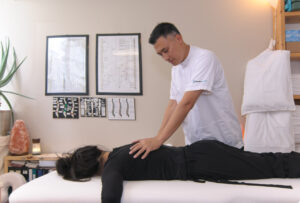Embarking on a journey with a functional medicine doctor can transform your health. This approach focuses on the root causes of ailments, not just symptoms.
Functional medicine offers a holistic view, integrating mind, body, and spirit. It emphasizes personalized care, considering your unique health story.
Asking the right questions is crucial to maximize your experience. It empowers you to make informed decisions about your well-being.
This guide will help you navigate your first appointment. Discover essential questions to ask your functional doctor.
Prepare to embrace a balanced, healthier lifestyle. Your holistic health journey begins here.
 By understanding how the mind, body, and spirit interconnect, functional medicine aims to restore balance. Through this integrative approach, long-term wellness becomes more attainable.
By understanding how the mind, body, and spirit interconnect, functional medicine aims to restore balance. Through this integrative approach, long-term wellness becomes more attainable.

Understanding Functional Medicine: A Holistic Approach
Functional medicine is a patient-centered practice focusing on whole-person wellness. It looks beyond individual symptoms to discover root causes. This approach blends traditional and alternative therapies, tailored to your specific needs. It’s a dynamic process involving both the patient and the practitioner. Key aspects of functional medicine include:- Personalized treatment plans
- Use of both modern and natural therapies
- Emphasis on lifestyle and nutrition
 By understanding how the mind, body, and spirit interconnect, functional medicine aims to restore balance. Through this integrative approach, long-term wellness becomes more attainable.
By understanding how the mind, body, and spirit interconnect, functional medicine aims to restore balance. Through this integrative approach, long-term wellness becomes more attainable.
Why the Right Questions Matter in Functional Medicine
Asking the right questions is crucial in functional medicine. It ensures a comprehensive understanding of your health needs and goals. This dialogue fosters a more personalized and effective treatment plan. When visiting a functional medicine practitioner, effective communication is key. Your inquiries guide the conversation, helping to align expectations. This exchange offers clarity on both sides. Consider asking about:- The practitioner’s approach to care
- The role of lifestyle changes
- How personalized treatment plans are developed
Essential Questions to Ask Your Functional Doctor
When stepping into the world of functional medicine, curiosity fuels growth. The questions you ask enrich your understanding. They empower you to take an active role in your healing journey. Every patient is unique. Functional doctors often merge traditional and alternative therapies to tailor your care. Your inquiries can reveal how these methods are integrated into your treatment. Consider asking about tests and assessments used to identify root causes of health issues. Testing is often more in-depth, aiming for precision and personalization. Inquire about how stress management and mental health are included. Mental and emotional well-being are key components of overall health. Understanding the use of nutrition and lifestyle changes in your plan is essential. These elements are foundational to effective functional medicine. The timeline for seeing results is important too. Clear expectations can increase your engagement in the process. Engage in discussions about the role of supplements and natural remedies. These often complement other therapeutic approaches. Questions should also cover the importance of preventive care and chronic disease management. Functional medicine places significant focus here. Don’t forget to explore how technology and telemedicine are used in the practice. They offer flexible options for ongoing care. Functional medicine not only seeks to treat disease but also optimize wellness, helping you thrive in every aspect of life.Questions About the Doctor’s Approach and Philosophy
The philosophy of a functional doctor shapes your entire care experience. Understanding their approach is foundational to your journey. This clarity ensures aligned values and goals. Consider asking about their diagnostic strategies. Inquire how they uncover and address the root causes of issues. Explore their views on patient-centered care and the mind-body-spirit connection. This deepens your understanding of their holistic lens. Ask questions like:- How do you define functional medicine?
- What is your approach to patient care?
- How do you integrate mind-body practices?
Questions About Testing, Diagnosis, and Treatment Plans
Testing and diagnosis are cornerstones of effective functional medicine. Gain insight into the types of tests and their purposes. Ask your doctor about the diagnostic process. This helps you grasp how personalized treatment is developed. Consider inquiring about their approach to treatment plans. Find out how they are tailored to individual needs. Key questions include:- What tests do you recommend and why?
- How do you diagnose conditions?
- How do you decide on treatment plans?
Questions About Lifestyle, Nutrition, and Mind-Body Integration
Lifestyle and nutrition are pillars in functional medicine. Inquiry into these areas enriches your treatment journey. Explore the role of lifestyle changes and nutrition. These factors often form the core of functional health plans. Understanding mind-body integration can also deepen your journey. It highlights the importance of mental and emotional health. Ask about:- How do nutrition and lifestyle integrate into care?
- How is stress managed within my treatment?
- What role does the mind-body connection play?
Questions About Experience, Credentials, and Collaboration
The experience of your functional doctor informs their practice. It builds trust and confidence in your care. Inquire about their credentials and specialization in functional medicine. It ensures they are well-qualified to guide you. Collaboration is key in healthcare. Understanding how your doctor collaborates enriches your treatment approach. Consider these questions:- What is your experience with functional medicine?
- What credentials support your practice?
- How do you collaborate with other healthcare providers?
Questions About Costs, Insurance, and Ongoing Support
Understanding costs and insurance is vital. It prevents surprises and aids in smooth financial planning. Explore the details of ongoing support in your care. This ensures continuous connection and progress. Ask questions such as:- How are services priced?
- What insurance coverage do you accept?
- How is ongoing support provided?
How to Prepare for Your First Functional Medicine Appointment
Preparing for your first meeting with a functional health practitioner can set the stage for a productive experience. This preparation ensures a comprehensive understanding of your concerns and goals. Start by gathering a detailed health history, including past treatments and current medications. Note any symptoms or health changes you’ve recently experienced. Compile any relevant medical records and test results. This information provides your functional medical doctor with a solid foundation to begin evaluation. Consider writing down key questions you want to ask. This helps ensure you cover all areas of concern during your appointment.Preparation Checklist:
- Gather medical history and records.
- Document symptoms and health changes.
- List current medications and supplements.
- Prepare questions for your doctor.

Building a Trusting Relationship with Your Functional Doctor
Establishing trust with your functional doctor is vital for a successful health journey. Trust fosters open communication and collaboration, enabling you to share your concerns honestly. Express your health goals and preferences openly. This helps your doctor tailor a plan that aligns with your values and lifestyle choices. Regularly engage in discussions about your progress and any adjustments needed. This ongoing dialogue strengthens trust and empowers your participation in your own health care.Trust-Building Tips:
- Be open about your health goals.
- Communicate regularly about your progress.
- Express any concerns directly.










